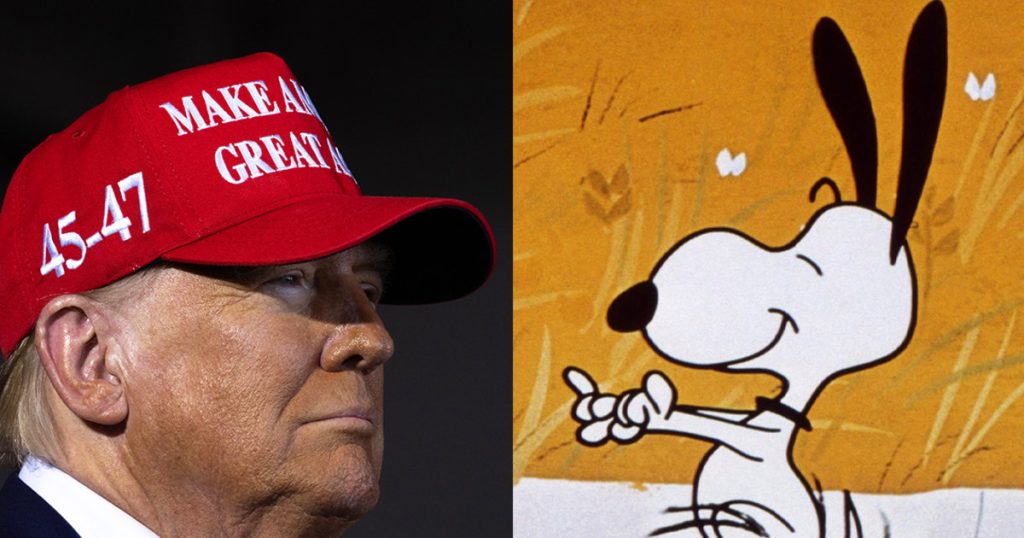Some Snoopy fans are upset about a social media account dedicated to the beloved character becoming political. Snoopy Weekly, a popular X account that is not associated with the Peanuts comic, received backlash for endorsing Donald Trump for the 2024 election. The account, which had over 19,000 followers, is just one of many Snoopy fan pages that have gained a large following in recent years due to the resurgence of the character in meme culture. While Snoopy was originally introduced in comic form in 1950 as Charlie Brown’s loyal companion, he has now found a new generation of fans, particularly among Gen Zers who share fan edits and memes of him on various social media platforms such as X, TikTok, and Instagram.
In response to Snoopy Weekly’s political endorsement, some fans expressed their disapproval. One commenter even posted a screenshot of the now-deleted endorsement with the caption “Snoopy hates you btw.” Another user recommended a different unaffiliated account, dailysnoopys, which has a more left-leaning stance. The account, with 123,000 followers, has shown support for a cease-fire between Israel and Hamas. Attempts to contact the owners of both Snoopy Weekly and Dailysnoopys for comment were unsuccessful, as Snoopy Weekly has since been deleted. Before its deletion, Snoopy Weekly had encouraged people to register to vote in swing states like Arizona and Georgia, featuring an image of Snoopy giving a thumbs-up next to an American flag and a voting box.
It is unclear whether Snoopy, if he were real, would take sides in politics. Charles M. Schulz, the creator of the Peanuts comic who passed away in 2000, was known to incorporate political themes into his work. Historian Blake Scott Ball’s book, “Charlie Brown’s America: The Popular Politics of Peanuts,” discusses Schulz’s belief in democracy and his efforts to advocate for equality for all Americans. Schulz supported individuals like Mortie Turner, a Black cartoonist, and Billie Jean King, a tennis player and women’s rights advocate. He also introduced diverse characters like Franklin, the first Black character in a mainstream comic strip, and Peppermint Patty, a gender-fluid character from a broken home, into popular culture. Ball’s analysis portrays Schulz as someone who believed in the power of democracy to lead the way.
Although Peanuts Worldwide LLC, which owns Snoopy’s intellectual property, did not respond to requests for comment, the official fan page for the comic, Peanuts.com, directs users to a site called Peanuts Rocks the Vote. On this page, fans are encouraged to register to vote and can select their preferred Peanuts character to be president. The involvement of Snoopy and other Peanuts characters in politics mirrors Schulz’s own beliefs in democracy and equality. Despite the controversy surrounding Snoopy Weekly’s political stance, it is evident that the legacy of Charles Schulz and the Peanuts series continues to influence and resonate with fans today.


